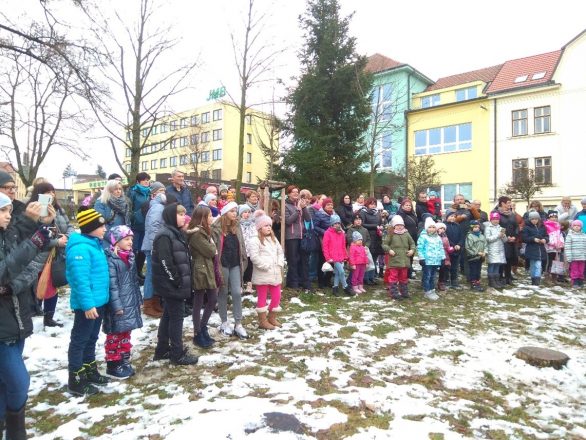
Students from T.G. Masaryka, Moravské Budějovice, Czech Republic have been working on project mission “New Park” as part of their PULCHRA project.
This WP sets out the ‘ethics requirements’ that the project must comply with.
The deliverable includes the procedures and criteria used to identify/recruit research participants must be identified, as welll as the measures to protect vulnerable individuals/groups that may be involved, so as to minimise the risk of their stigmatisation.
The deliverable includes detailed information on the informed consent procedures in regard to the participation of humans, to data processing and, in case children are involved, details on how the consent of the legal representatives (and assent, when applicable) will be acquired.
The deliverable includes among other Data Protection Officer (DPO) contact details that will be made available to all data subjects involved in the research. Description of any data processing, always in accordance with the ‘data minimisation ‘principle and description of the technical and organisational measures that will be implemented to safeguard the rights and freedoms of the data subjects/research participants
The main objective of this WP is to coordinate the project’s execution in order to guarantee the technical, non-technical and administrative coordination among all activities involved in the project, while fulfilling all legal and EC requirements.
The Management Plan describes the processes for interfacing with the EC, of interacting among partners, of decision making, of financial and general reporting, of progress monitoring, conflicts’ resolution, etc.
This deliverable includes the identification of the interested parties to participate and/or follow the project’s activities, as well as their requirements that are essential for excelling the implementation of the project.
Data Management plan refers to the collection, use and dissemination of data, in view of IPR protection, transparency, easiness in use and availability.
The main objectives of this WP are the development of an inventory of existing open access educational resources on Open Schooling and the assessment of the links between science education and the science of cities as urban ecosystems.
This deliverable includes science educational methods and approaches to be used in the PULCHRA project and an inventory of open access educational resources on Open Schooling as used in the European Union countries and at the international level.
The main objective of this WP is the definition of the requirements and operational patterns of the Open Schooling Network. WP4 coordinates the selection process of schools, develops an outreach process for the Open Schooling Network of PULCHRA and documents the operational patterns.
This deliverable includes the requirements to be met by schools and other stakeholders in support of open schooling, as well as the operational patterns for the operation of the Open Schooling Network.
The main objective of this WP is to define the themes of the City Challenges and to design the implementation parameters of the City Challenges. Supporting documents for the City Challenges are developed, as well as the guidelines for the City Challenges Workshops.
This deliverable includes the thematic targets and operational patterns of the Science Teams as a function of the City Challenges themes.
This WP develops an inventory of existing open access educational resources on Cities as Urban Ecosystems and takes note of the WP3 deliverables in order to design, develop and test open access educational resources in line to the theme of PULCHRA.
This deliverable includes educational material (in digital mode) and educational resources for the Open Schooling Network, focusing particularly on the cities as urban ecosystems and the urban climate.
This deliverable includes educational material (in digital mode) and educational resources for the City Challenges as defined in WP5.
The main objective of this WP is to design and develop the City Challenges Platform and the mobile application of PULCHRA.
This deliverable refers to the design, development and population of the PULCHRA platform that will support the open schooling and the City Challenges implementation.
This deliverable refers to the development of the PULCHRA app that will be used by partners and interested parties.
The objective of this WP is to develop free distance learning courses for training purposes.
The course may be followed distantly; it will be open to the users of the Platform and will provide guidelines for its use.
The course will support the deepening of knowledge of the stakeholders and other end users who follow the project, in terms of cities as urban ecosystems.
This WP defines the requirements for the Science Reporters, the operational rules of the Science Reporters, while develops and supports the Science Reporters teams.
This deliverable includes a series of activities in support of the Science Reporters and aligned to the theme of the project, namely “Cities as urban ecosystems”.
The main objective of this WP is the monitoring and coordination of the City Challenges.
This deliverable includes an in depth assessment of the City Challenges Achievements, obstacles or failures are recorded and linked to the overall City Challenges framework and the capacity to address the open schooling concept.
This WP aims to promote cooperation with regional and international organizations, to develop the exploitation plan of PULCHRA and to promote the replication of the project to other EU countries.
The Exploitation Plan includes information on how to keep PULCHRA alive after the end of the project.
This WP prepares guidelines for the use of the City Challenges Platform in support of virtual enterprises, twinnings, hackathons etc. An inventory of enterprises and entities for potential registration in the City Challenges Platform will be provided under this WP.
This deliverable includes an inventory of enterprises. Contact, attract and promote the registration of enterprises to the City Challenges Platform in view of its population for the benefit of collaborations with partners and schools.
The main objective of this WP is the evaluation of the project progress and of its results. Indicators regarding the progress of the activities are defined.
This deliverable includes a thorough assessment of the project impact, made by the partners and the Evaluation Committee.
This WP develops the publicity strategy and tools in order to disseminate the project results.
The document includes all the information needed to facilitate the dissemination efforts of the PULCHRA project partners
The Web site will be launched soon after the project start and will be continuously updated to reflect the wealth of information and results. It will be maintained for three years after the end of the project.
The project will organize three international Workshops as follows: • Workshop #1 in Bucharest, on the topic “Educational methods in support of science and science education for Cities as Urban Ecosystems” • Workshop #2 in Prague, on the topic “City Challenges – Open Schooling – The Cities as Urban Ecosystems” • Closing Workshop in Athens.
The document includes all the information needed to facilitate the communication efforts of the PULCHRA project partners.

This project has received funding from the European Union’s Horizon 2020 research and innovation programme under grant agreement No 824466. This page reflects the views of the author and the European Union is not responsible for any use that may be made of the information it contains.

Students from T.G. Masaryka, Moravské Budějovice, Czech Republic have been working on project mission “New Park” as part of their PULCHRA project.
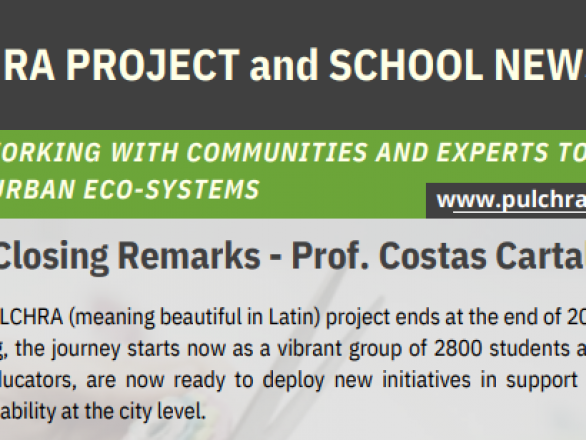
The latest and final edition of the PULCHRA Project and School News has now been published. Hear from Prof. Costas Cartalis as
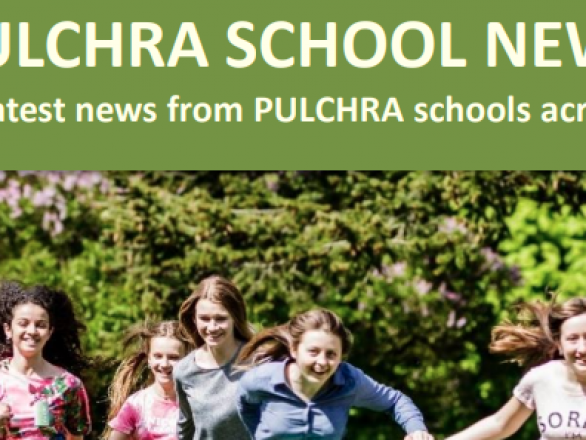
The final issue of the PULCHRA School News is out. A huge thanks to all the PULCHRA City Science Reporters who contributed!

The international PULCHRA project is coming to an end. There were six topics for the pupils to choose from. The most common
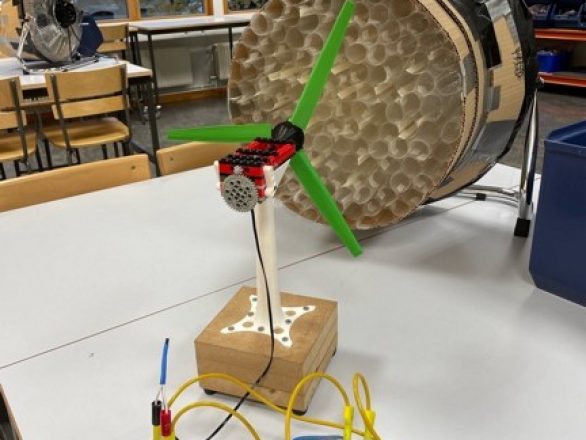
In the second year of the City Challenges in Sweden, more than 200 students from various schools in the Stockholm region had
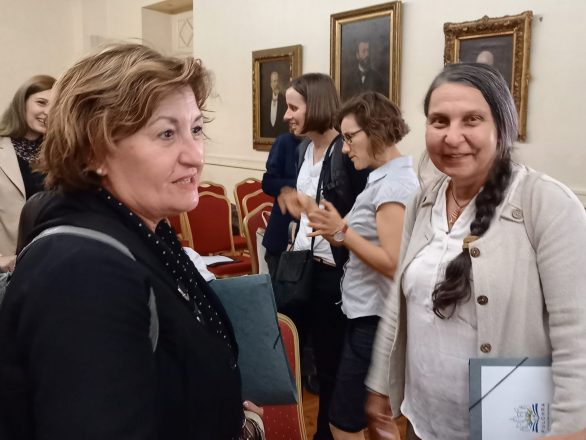
PULCHRA School Workshop (Cities and Climate Change, new challenges for education at the school level), Athens, November 7th, 2022 Maria Dimopoulou has